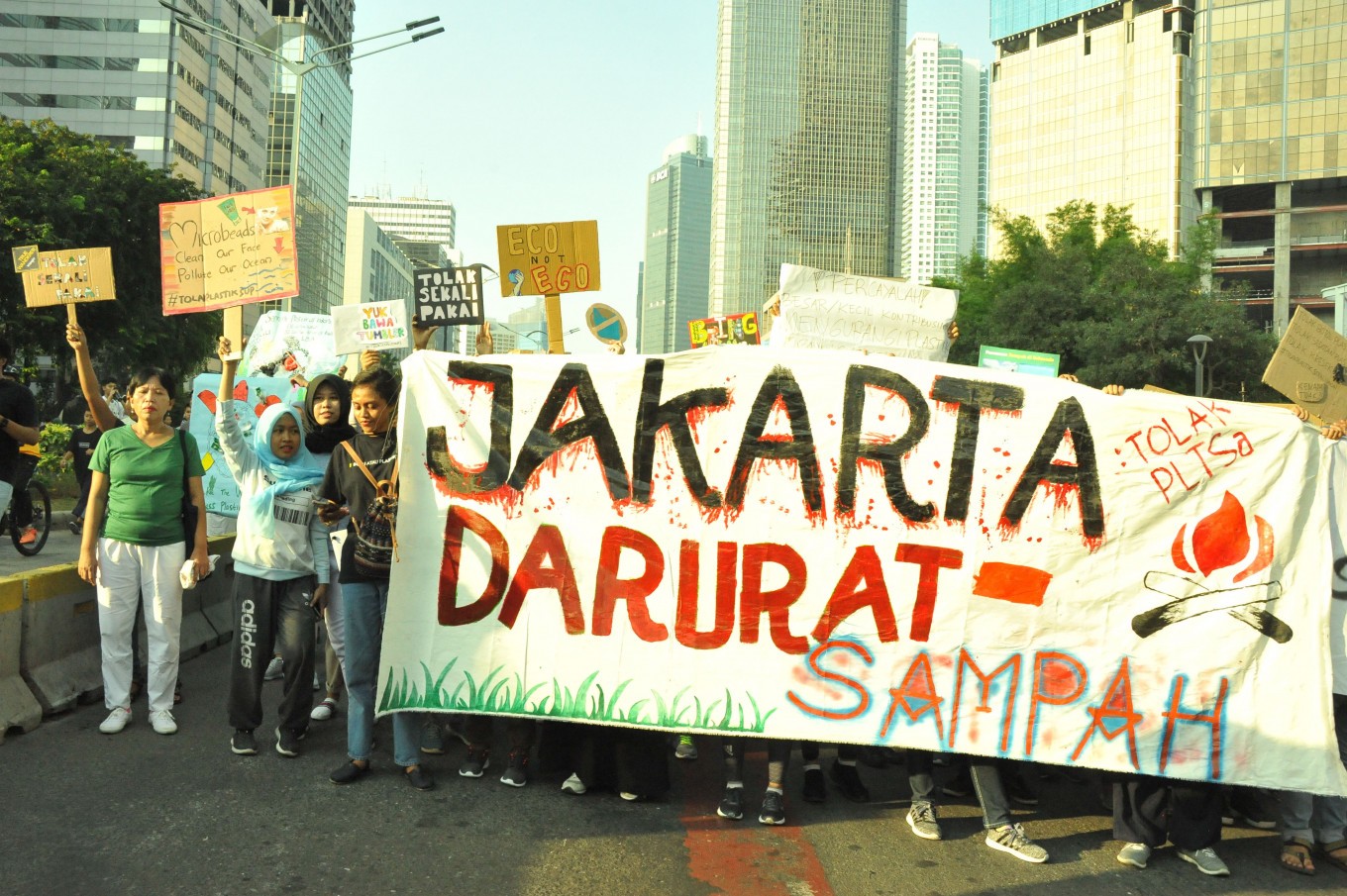Popular Reads
Top Results
Can't find what you're looking for?
View all search resultsPopular Reads
Top Results
Can't find what you're looking for?
View all search results‘It’s necessary’: Greenpeace lauds government’s plan to tax plastics
“An excise on single-use plastic products, such as plastic bags and straws, should be prioritized,” Greenpeace spokesperson Muharram Atha Rasyadi says.
Change text size
Gift Premium Articles
to Anyone
E
nvironmental watchdog Greenpeace Indonesia has applauded the government for planning to impose a levy on plastic products, describing it as an important measure to reduce the plastic waste that is damaging the environment.
“Taxes are one way to constrain uncontrolled plastic consumption, as single-use and non-recyclable plastic has damaged the environment and threatens human and animal life,” Greenpeace spokesperson Muharram Atha Rasyadi said in a statement on Thursday.
He added that the levy should be imposed on various kinds of plastic packages for food and beverages and other fast moving consumer goods.
“An excise on single-use plastic products, such as plastic bags and straws, should be prioritized,” Muharram went on to say.
Such a plan would be an encouragement for industry to apply circular-economy mechanisms, which prioritize reusage and refilling activities, Greenpeace added. The circular economy is a sustainability concept that seeks to minimize waste by deploying resources optimally through reuse, recycling and remanufacturing.
Read also: Indonesia revives excise plan on plastics, dirty vehicles and sweet drinks
“We are at the peak of a plastic crisis, because our landfills can’t hold those kinds of waste anymore. Our rivers and seas have become trash bins for these plastic products,” said Muharram.
The government has set an ambitious target of 70 percent marine debris reduction by 2024; therefore, “real and quick efforts are necessary,” he went on to say.
Finance Minister Sri Mulyani Indrayati has told House of Representatives Commission XI overseeing financial affairs that the government is planning to impose an excise on plastics, among other commodities.
The plan would reduce plastic consumption by up to 50 percent, she said, adding that the government would receive revenue of Rp 1.6 trillion (US$116.6 million) each year. It would also force plastic producers to transform themselves into producers of environmentally friendly goods.
The government has been planning to impose an excise on plastics since 2017 but has yet to receive approval from lawmakers.
Indonesia has been listed as the world’s second-largest marine polluter as 15 percent of 1.3 million tons – 195,000 tons -- of plastic waste ends up in rivers and oceans each year. (gis)










